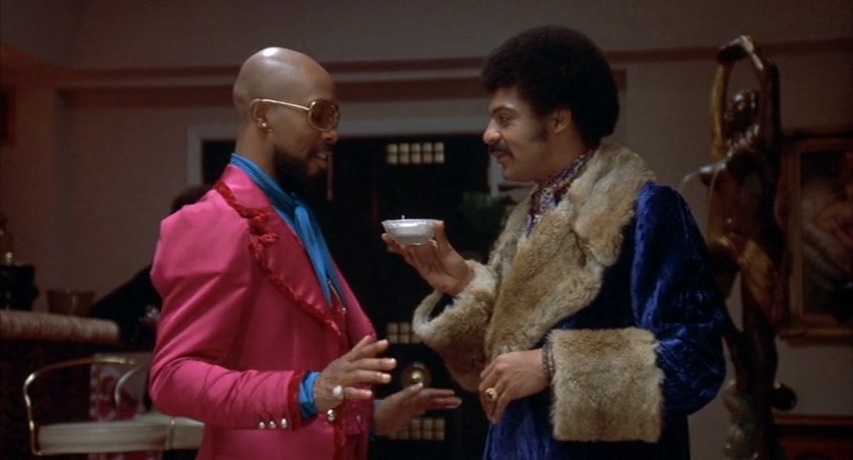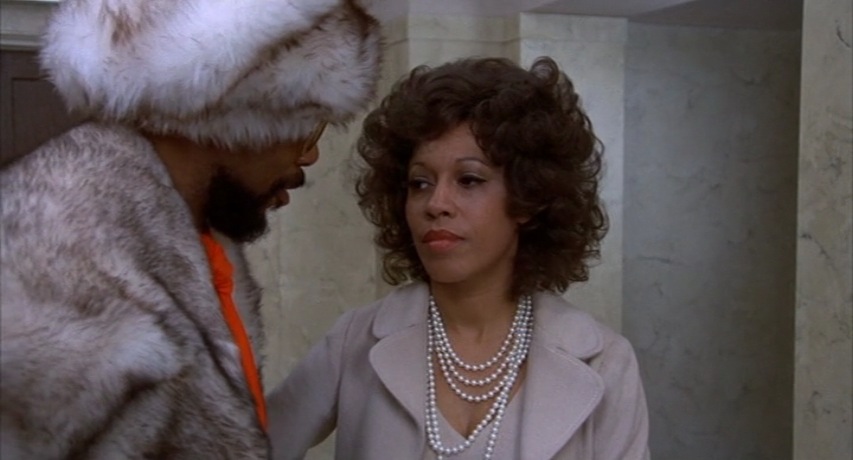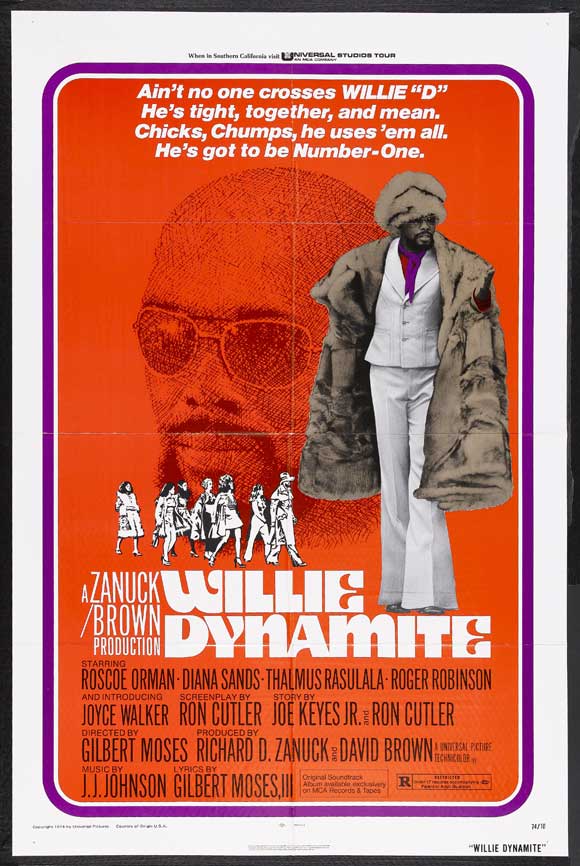The Soul of the 70s: Part Three "Make It Right"
 Tuesday, August 14, 2012 at 6:01AM
Tuesday, August 14, 2012 at 6:01AM When it comes to 70s exploitation, always bet on black!
Willie Dynamite
(1974)
Synopsis
Willie Dynamite (Roscoe Orman) is one of New York’s top pimps with a multiracial stable of 7 beautiful women working one of the top hotels in the city. But the law is squeezing in on his trade and his fellow top hustlers want to form a co-operative to make it through this tough time. Willie ain’t a team player, though, so he refuses. His life is further complicated by a former hooker turned activist named Cora (Diana Sands), who has dedicated herself to saving his girl Pashen from the life and finding her respectable work as a model. Thanks to Cora, her district attorney boyfriend (Thalmus Rasulala), and the two cops (George Murdock & Albert Hall) dedicated to bringing him down, Willie’s empire begins to crumble and he’s forced to ask himself if being the flashiest playa in town is worth all of the pain, misery and death it brings.

Pertinent Details
Big Hollywood Producers: While many Blaxploitation movies were made by low budget producers on the fringes of Hollywood culture, Willie Dynamite was actually the second effort by Richard D. Zanuck and David Brown (I wrote about their first film, Sssssss, here) who had previously ran 20th Century Fox together before moving on to work as independent producers at Universal. Their biggest hit together would come a year later, when they made a film about a killer shark named Jaws and played a major role in revitalizing what was then a dying industry.
An Attempt at Authenticity: Because of Zanuck and Brown’s influence, they were able to make sure that their film about a black pimp actually had a black director calling the shots. Willie Dynamite would end up being the first of Gilbert Moses two feature films, the other being the 1979 Julius Irving basketball oddity, The Fish Who Saved Pittsburgh.
Posthumously Released: Though the film is called Willie Dynamite, the film’s most compelling character (and true protagonist) is Cora, who was played by Diana Sands, an actress who would be much better known today were it not for her death from cancer in 1973, four months before the film was released in January of 1974. She was only 39 years old.

Willie Dynamite is an example of a Blaxploitation film that plays with our expectations of the genre, providing us with all of the gaudy glamour and attitude we would expect from a film that features a male main character who walks around in fur coats and drives a purple Cadillac (I’m guessing—I know less than nothing about cars), while also attempting to be a serious examination of a criminal’s fall from grace and possible redemption. It’s a film that both wants you to laugh at it and take it seriously at the same time and the remarkable thing is that it very nearly gets away with it.
The biggest shock for most viewers is seeing Roscoe Orman in the title role—his movie debut. Though you may not recognize his name, if you grew up enjoying the urban adventures in a special place called Sesame Street, then you know his face, since he played the part of Gordon for 35 years. Thanks to his beard and flashy wardrobe he’s almost unrecognizable, but during those brief moments when his future self does show through, the effect can be chilling.
It’s a strong, if occasionally overwrought performance, affected as much by some over dramatic scripting and bad direction as anything else. The best thing about it is Orman’s refusal to seek out our sympathy. Willie is not a likeable guy and many, if not most, of his actions throughout the movie are deplorable, yet somehow, when he denies ownership of the purple car being towed away from his old apartment, it’s impossible not to feel some hope that this symbolic gesture is an actual sign of his choosing a new path and becoming a new man.
It’s a feeling of hope that wouldn’t be possible were it not for the performance of Diana Sands. Her Cora is the film’s true hero and easily the most sympathetic character. When her goal is to take Willie down and rescue Pashen, we remain entirely on her side, completely unconflicted as she breaks the law to do what she feels is right. Yet we also understand her ambivalence when she succeeds and Willie’s life stands in ruins. She doesn’t feel any joy or sense of victory. She’s sad for him and invites him into her house for coffee in the film’s most powerful scene:
But lest you think this all too melodramatic, Willie Dynamite never forgets how absurd and gloriously tacky so many of its characters really are. Because the genre demanded it, Willie gets his own catchy theme song, which we hear twice in the movie and is so awesome I would have bought it from iTunes immediately after I heard it if it were available:
This is a movie where we actually see a brotherhood of pimps discussing their business a la Black Dynamite (whose name suggest this effort served as a major inspiration). Their leader, Bell, is played so over the top by Roger Robinson, he actually could have been lifted whole and placed in that satire without changing a single vocal inflection. He’s a parody of a parody, but his presence doesn’t take the whole thing down. Instead he’s an amusing note in an often-serious film that takes pains to show that there are actual consequences for the women ruled over by these men.
Not a perfect movie, the film still manages to deliver the goods we expect, but in a way that allows us to enjoy the spectacle without feeling like we’re supporting it. Willie is less an anti-hero than an asshole with just enough humanity that after we’ve seen him taken down, we’re ready to see him built back up—hopefully as someone less destructive and with much better taste.
Bad Mother--SHUT YOUR MOUTH! Rating: 7 Fur Hats out of 10


